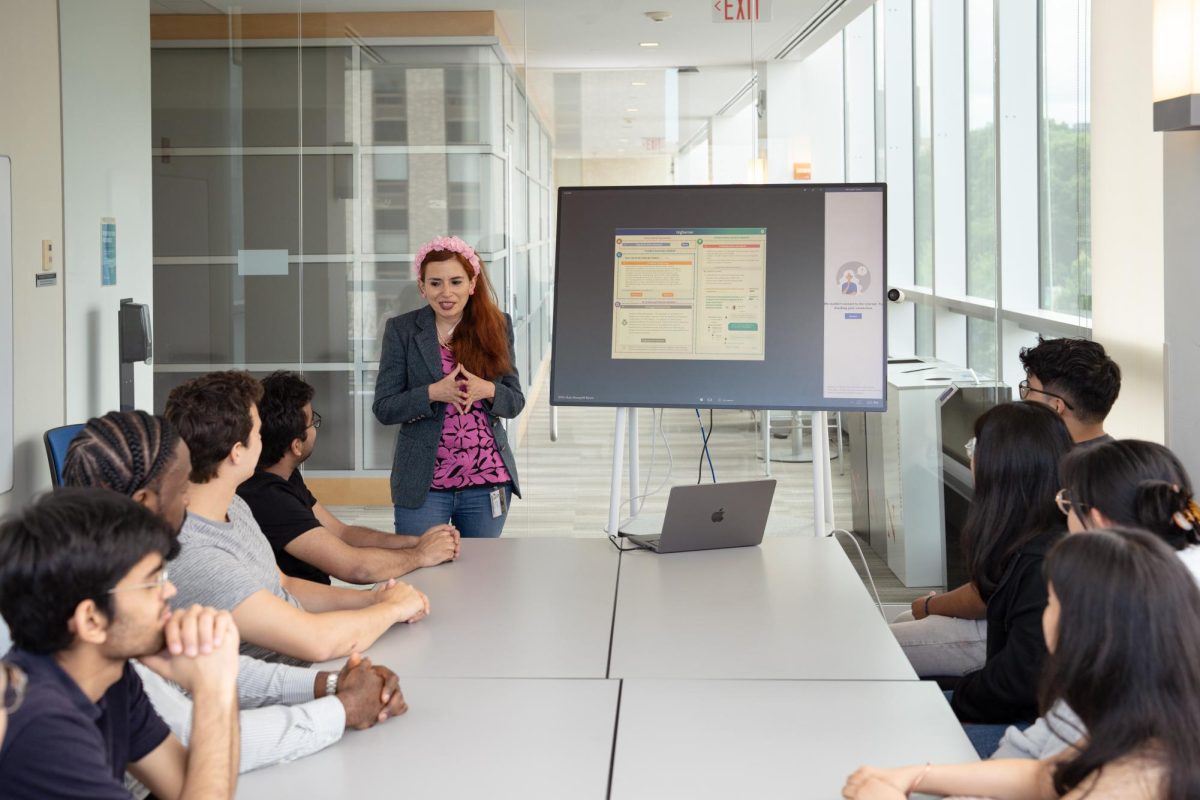Op-ed: Fraternities have a duty to combat sexual violence on campus
Northeastern students are advocating for an end to sexual violence on college campuses.
October 26, 2022
Content warning: Discussions of sexual assault, violence and rape
Editor’s note: If you or someone you know is a victim of sexual violence, there are resources on our campus to help you.
To make a Title IX complaint about a peer that will result in a formal investigation, contact the Office of University Equity and Compliance at https://www.northeastern.edu/ouec/, by emailing ouec@northeastern.edu, or calling the Northeastern University Police Department at +1 (617) 373 – 3333. Conversations about a Title IX violation with mandated reporters such as OUEC staff, professors or RA’s will result in formal investigative steps.
For completely confidential advice or counseling, contact the Office of Prevention and Education at Northeastern (OPEN) by visiting https://studentlife.northeastern.edu/open/ and navigating to the “Meet With Us” tab in the banner, or emailing open@northeastern.edu.
Sexual violence is an epidemic, and solving it requires combatting the problem close to its source. The Rape, Abuse and Incest National Network, or RAINN, estimates that about 26% of undergraduate women and around 7% of undergraduate men experience sexual violence at some point in college. As major contributors to the issue, fraternities are in a unique position to take substantial action to fight sexual violence on campus.
Most (78%) of all reported sexual assaults are perpetrated by a man, giving credence to the idea that being male carries privilege and power in modern society. In the college context, fraternity culture is the manifestation of male identity because it operates in an insulated, single gender environment. Additionally, membership in fraternities requires the payment of hundreds of dollars in dues every semester, creating a high barrier for entry for those with little economic means. This intersection of gender and economic class creates powerful privileges that can be used to advocate for major social change
Traditionally, sexual violence prevention has been deemed a women’s issue and women’s groups and their allies have borne the brunt of the struggle. This was demonstrated in how Northeastern students responded to the Title IX changes in 2020
In 2020, the Trump-DeVos Department of Education issued updated Title IX rules that were described by advocates to be deeply flawed. Among the biggest changes were recommendations for a higher standard of proof in Title IX investigations and mandatory cross examination for accusers. This created a more legalistic system that gave the accused more due process rights. Some argued this was more fair, while others argued that these changes were exactly the opposite of what was needed, as sexual violence on campus is an underreported crime. Around four out of five female students choose not to report. Making the process more intimidating would only make the problem worse.
In response to these changes to Title IX, Northeastern students, predominantly women and especially the Sexual Assault Response Coalition took action. Important achievements such as advocacy for the informal Title IX process and widened awareness of the Instagram page @neuspeakout helped increase public discussions and accountability. While much was achieved, those least responsible for sexual violence cannot be expected to solve the issue when those who are most likely to perpetrate it fail to act.
While sexual violence on campus is in no way limited to fraternity life, certain risk factors exist in that kind of environment. Fraternity men are three times more likely to commit rape, and women in sororities are 74% more likely to be survivors of rape than non-affiliated peers.
The biggest risk factor in a fraternity is that the single-gendered environment can be homogenous and lacking in dissent. This can cultivate problematic feedback loops and complacency amongst members that manifest in the form of toxic masculinity. Warning signs for this kind of environment include a tendency for members of organizations accused of misconduct to downplay the allegations and focus on individual actions instead of group accountability. In The Atlantic, Boston University professor Ibram X. Kendi made an important comparison between how fraternities and gangs are treated in society, stating that gangs as a whole are often condemned, while individual fraternity brothers’ actions are seen as an aberration.
Fraternity men do not often act to prevent sexual violence because they do not feel empowered to do so. Some feel threatened by those who condemn their group culture and others do not understand the risk factors behind sexual violence. Northeastern must continue to stress the need for comprehensive bystander intervention, consent and related forms of education. Fraternity brothers must realize they are on the same side as sexual assault prevention advocates, fighting against evil afflicting our peers. Fraternities can play an outsized role in improving campus culture.
The privilege fraternity brothers hold must not be seen as a burden but instead as power to make positive consequential change. First and foremost, fraternities who do not already have a member of leadership devoted to sexual violence prevention must immediately do so. This person should be responsible for educating themselves, building relationships with sexual violence prevention advocates and Northeastern administration and creating educational materials for their peers around consent, bystander intervention, party expectations, relationship with alcohol and related areas.
The Sexual Assault Prevention Chairman (or similar role) must also encourage higher-level change in their organization. An environment completely intolerant of abusive activity must be created and maintained by breaking problematic feedback loops and toxic masculinity.
Expectations around hook-ups should evolve. While it is acceptable for someone to desire sex, it is completely unacceptable to abuse their position to force a sexual act on someone who does not consent. Sex is a privilege, not a right.
Another effective tool is empathy-based education. It is important for fraternity brothers to learn that 7% of men are survivors and that 93% of men that are abused were abused by another man. These survivors may be fellow members and an environment should exist where they feel comfortable. In addition, making more female friends can go a long way in developing empathy. Fraternities must also minimize hazing and other hierarchical practices to encourage members to call out problematic behavior. When allegations of misconduct do emerge, fraternities must take it as a condemnation of their culture and commit to substantial change.
This work can go a long way in redefining masculinity for the better, especially since fraternity environments hold so much pull in the public imagination. I care so deeply about this issue because I established the position of Sexual Violence Prevention and Education chair in Northeastern’s chapter of Phi Gamma Delta, or FIJI, and served in the role from January to August 2022. The information described above is what I researched and implemented. Although it is not a perfect plan, I sincerely hope the above described changes are a substantial step in the right direction. I urge all organizations on our campus, especially fellow fraternities, to do their absolute best to fight sexual violence. Only together can we end this epidemic.
Frank R. Mastroianni is a fourth-year studying criminal justice and political science with a minor in international affairs. He can be reached at mastroianni.f@northeastern.edu








